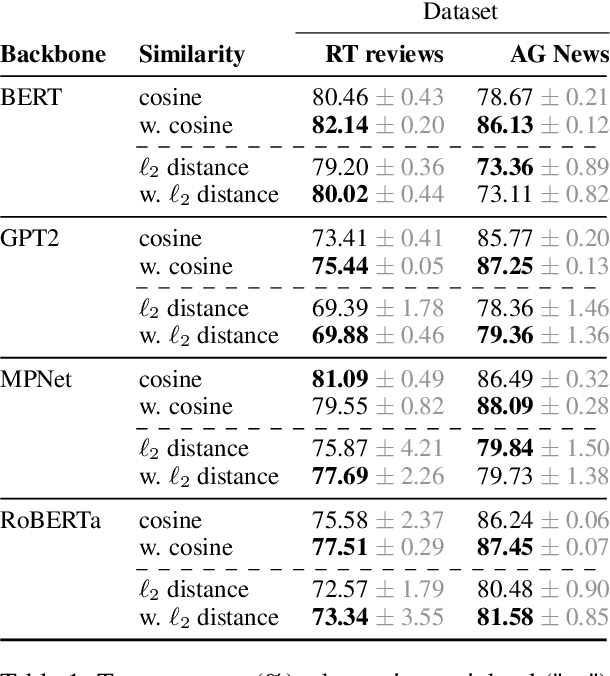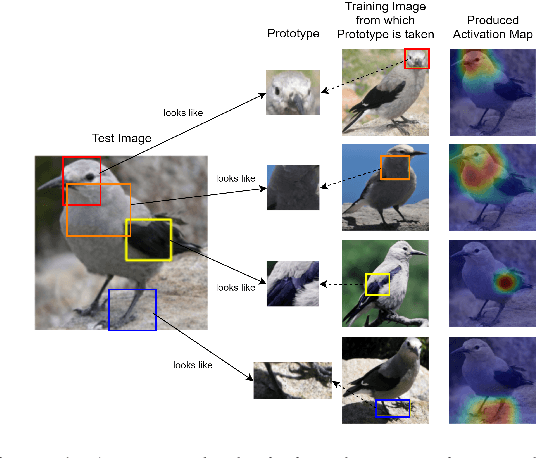Severin Husmann
This Reads Like That: Deep Learning for Interpretable Natural Language Processing
Oct 25, 2023



Abstract:Prototype learning, a popular machine learning method designed for inherently interpretable decisions, leverages similarities to learned prototypes for classifying new data. While it is mainly applied in computer vision, in this work, we build upon prior research and further explore the extension of prototypical networks to natural language processing. We introduce a learned weighted similarity measure that enhances the similarity computation by focusing on informative dimensions of pre-trained sentence embeddings. Additionally, we propose a post-hoc explainability mechanism that extracts prediction-relevant words from both the prototype and input sentences. Finally, we empirically demonstrate that our proposed method not only improves predictive performance on the AG News and RT Polarity datasets over a previous prototype-based approach, but also improves the faithfulness of explanations compared to rationale-based recurrent convolutions.
On the Importance of Clinical Notes in Multi-modal Learning for EHR Data
Dec 06, 2022Abstract:Understanding deep learning model behavior is critical to accepting machine learning-based decision support systems in the medical community. Previous research has shown that jointly using clinical notes with electronic health record (EHR) data improved predictive performance for patient monitoring in the intensive care unit (ICU). In this work, we explore the underlying reasons for these improvements. While relying on a basic attention-based model to allow for interpretability, we first confirm that performance significantly improves over state-of-the-art EHR data models when combining EHR data and clinical notes. We then provide an analysis showing improvements arise almost exclusively from a subset of notes containing broader context on patient state rather than clinician notes. We believe such findings highlight deep learning models for EHR data to be more limited by partially-descriptive data than by modeling choice, motivating a more data-centric approach in the field.
 Add to Chrome
Add to Chrome Add to Firefox
Add to Firefox Add to Edge
Add to Edge